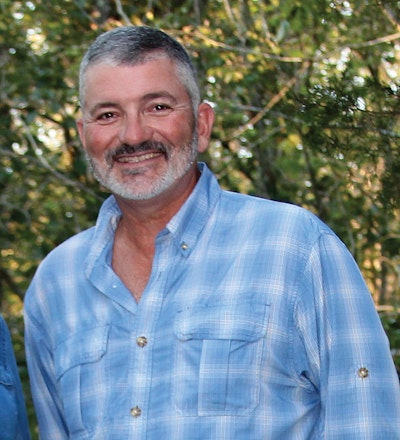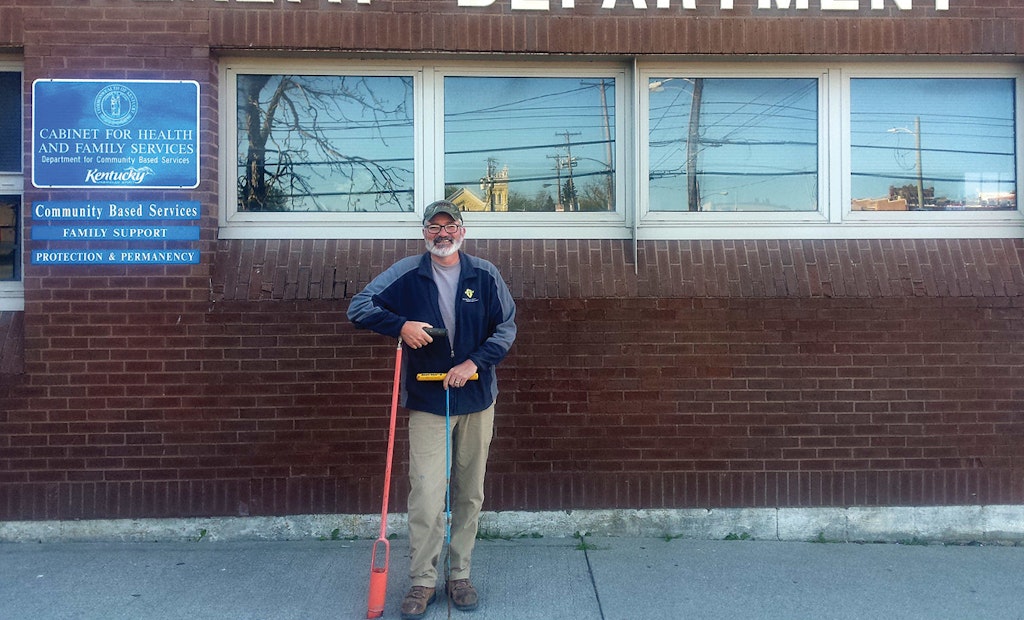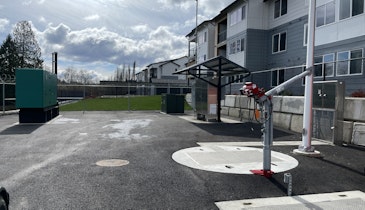Interested in Education/Training?
Get Education/Training articles, news and videos right in your inbox! Sign up now.
Education/Training + Get AlertsIn this Snapshot, we talk to a member of a state, provincial or national trade association in the decentralized wastewater industry. This time we visit a member of the Kentucky Onsite Wastewater Association.
Name and title or job description: Buddy Wilson, environmental health director
Government office and location: Montgomery County Health Department, Mount Sterling, Kentucky
Services we offer: My main area of focus is onsite systems. I am an inspector.
Age: 51
Years in the industry: 25
Association involvement: I am a charter member of the Kentucky Onsite Wastewater Association. I helped start the association about 18 years ago and am currently a vice president.
Benefits of belonging to the association: We started the association to incorporate the installers into an organization they didn’t have previously. We as inspectors belong to a lot of organizations — the Kentucky Environmental Health Association, the Kentucky Public Health Association — but the installers didn’t have something they could belong to. We also included industry representatives — people who manufacture tanks, pumps, alarms and equipment. We used to hold a yearly conference where installers could obtain their continuing education credits to maintain their certifications.
Biggest issue facing your association right now: When we started out we had many members. Then the housing industry crashed and our membership dwindled. We stayed afloat and our numbers are starting to increase but not to the point we can justify holding a conference. It’s too expensive. But we do stay vocal in the state. When the installers need hours, they can contact us on our website. We do remote trainings now. We have an office in Frankfurt where we have classes. But I teach classes all over the state. If we get enough people for a class in a county, I’ll go and do a one-day, six-hour training class.
Our crew includes: My director is Allison Napier and my administrative assistant is Cheryl McCoy. Emily Covey is another environmentalist in the office with me. She and I are both registered sanitarians with the state of Kentucky and certified to do onsite inspections.
Typical day on the job: I spend two hours in the office from 8 to 10 a.m. doing bookwork and filing. Then for the rest of the day I’m in the field doing inspections, site evaluations, repair inspections.
The job I’ll never forget: About six months after the installation of a new conventional leaching chamber septic system, the homeowner called complaining that the system wasn’t functioning properly and sewage was leaking in her backyard. I thought that was strange. I went out to the house and went to the backyard where the septic system was. She had a pet pot-bellied pig — a big one, about 200 or 300 pounds. Pigs like to wallow in mud and the pig had rooted up her leaching chambers and was wallowing in sewage. I told her she had to get the pig out of the backyard.
My favorite piece of equipment: I’ve dug holes all around the state of Kentucky with my favorite piece of equipment, which is my hand soil auger. I’m on my third one. I also love my Caterpillar mini-trackhoe, which comes in handy around the farm.
Most challenging site I’ve worked on: We had to calculate the total daily waste flow for a couple of boys’ camps and a boys’ home. The challenge with those is, at the boys’ home you have a number of boys living there full time, some full-time staff living there, part-time staff coming in during the day, and visitors stopping by. So it’s challenging to get an accurate total daily waste flow. You don’t know how full they’re going to be or how many people are coming and going. For the camps, you have a lot of campers during the summer but the rest of the year it’s vacant, so you’ve got to anticipate that huge initial surge of wastewater, but then nothing the rest of the year. So we call around to other counties to see what they’ve done, we use some formulas, then do our best and always err on the side of caution.
Oops, I wish I could take this one back: One of my friends built a house and asked me to help him put his septic system in. I’m not the best backhoe operator. We were going to put leaching chambers in that were 3 feet wide. We marked the lines out on top of the ground and I started digging. But I only had a 2-foot bucket on the track hoe. Being inexperienced — this was 20 years ago — I started out on top of the ground at 3 feet but the sidewalls narrowed in at the bottom so a 36-inch leaching chamber would not fit. I had to go back and shave the sidewalls down on all three lateral lines with a shovel.
The craziest question I’ve been asked: An installer questioned me about filling the tank with water. He was installing a new tank and called me to come out for inspection. It was a metal tank. It was going to rain and he said, “I’m going to cover this up.” I said, “Yes, but you need to fill it with water before you cover that metal tank because it’ll float out of the ground.” He said he wasn’t worried about that. I said it again but instead of putting water in the tank he pulled his backhoe up to it and set his front boom down on it. A huge rain came that night. The tank popped out of the ground, flipped his backhoe and broke the cab.
If I could change one industry regulation, it would be: I would mandate a separation of all washing machine lines into their own separate lateral field. Washing machines are the largest producer of wastewater in the house and create a lot of problems with the chemistry in a septic tank with the bleaches and soap powders.
Best piece of small-business advice I’ve heard: The business owner has to be there — you can’t have somebody run your business like you will run your business.
If I wasn’t working in the wastewater industry, I would: Still own my outdoor sporting goods/gun store. I owned that store for 10 years while I started doing this. I started out with the state, then I bought the gun shop from my parents and quit the state. The state kept calling me back and the reason I came back was for retirement and insurance.
Crystal ball time – This is my outlook for the wastewater industry: Last year in Kentucky we released drip irrigation systems off experimental status. I’m excited for the future of onsite with the ability to install drip irrigation systems. I think that’s going to help us a ton on repairs, on old systems, on small lots. You can put drip irrigation in areas you couldn’t use anything else in. I think that’s going to be a real positive for the future and help a lot of people. They’re slowly coming online now.







